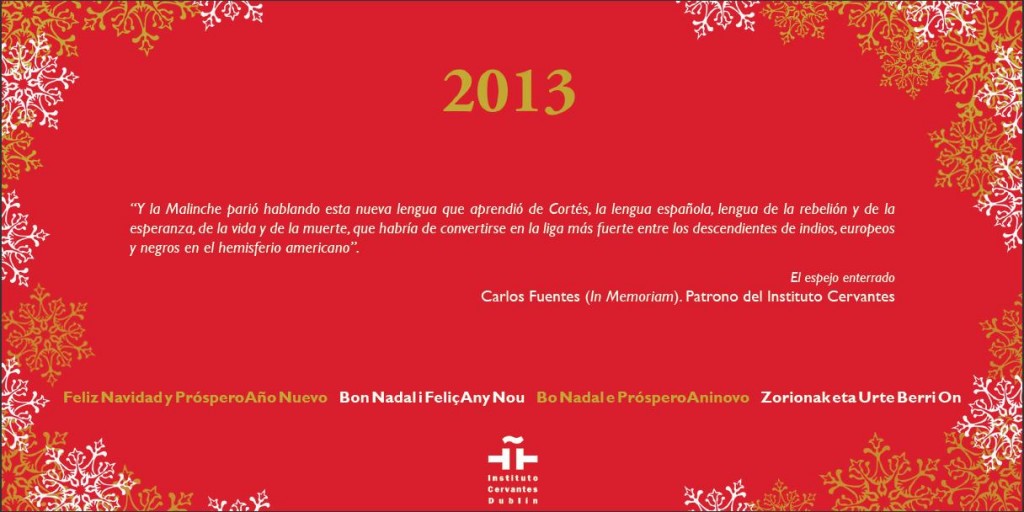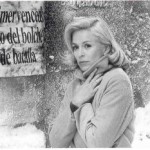Blog del Instituto Cervantes de Dublín
Torre Martello
Proyección de cine | Film Screening: Los dioses rotos
No olvides tu cita con el mejor cine cubano hoy a las 18:00 horas en el Café 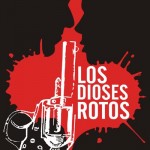 Literario. La película de hoy es Los dioses rotos.
Literario. La película de hoy es Los dioses rotos.
Laura (35 años) es una profesora universitaria que prepara su tesis de maestría sobre el famoso proxeneta cubano Alberto Yarini y Ponce de León,asesinado a balazos por sus rivales franceses que controlaban el negocio de la prostitución en La Habana de comienzos del siglo XX. Alberto y Sandra (24 años) nos hablan de una juventud signada por su entorno social. Ella, saliendo de la cárcel; él, de regreso de París en el albor de su carrera como gigoló.
Pero más allá de su anécdota, Los Dioses Rotos es una trama de valores enfrentados; una reflexión en torno a la perspectiva ética y moral de un grupo de personajes -de todos los niveles socioculturales- entre quienes los clichés de “positivos” y “negativos” no resultan sencillos de etiquetar. Drama social, suspense y melodrama comulgan en una historia interesada en resultar amena, universal y consecuente con la realidad a la que se debe.
Don´t forget your appointment with the best Cuban cinema today at 6pm at Café Literario. The movie for today is Los dioses rotos.
Laura (35 years) is a University professor preparing her master’s thesis on
the famous Cuban pimp Alberto Yarini y Ponce de León, gunned down by his French rivals, who controlled the prostitution business in Havana at the start of the 20th century. Alberto and Sandra (24 years) tell us of a youth marked by their
social environment. She, just out of jail; he, just back from Paris and starting
his career as a gigolo.
But beyond its anecdote, The Fallen Gods is a story of values confrontation; a reflexion around the ethical and moral perspective of a group of characters –from all social and cultural backgrounds- among who the “positive” and “negative” clichés are not easy to label. Social drama, suspense and melodrama together in a story aiming at being interesting, universal and consequent with its reality.
Felices fiestas y feliz año 2013
Hoy es nuestro último día de apertura. Mañana ya estaremos celebrando las fiestas. Todo el equipo que forma el Instituto Cervantes de Dublín os desea unas muy felices fiestas y un muy feliz año 2013.
Last day working before Christmas. Instituto Cervantes in Dublin is closed tomorrow. We wish you a Merry Christmas and a very happy 2013.
Nollaig Shona agus athbhliain faoi mhaise daoibh go léir!
[Video] Elena Durán en el Instituto Cervantes de Dublín
Elena Durán es una de las flautistas más carismáticas en el mundo. Ha ofrecido conciertos y ha grabado discos con muchas de las orquestas más prestigiadas del Reino Unido, Europa y Estados Unidos, así como con prácticamente todas las orquestas importantes de México. En esta entrevista realizada por Irene, compañera de la Embajada de México en Irlanda, nos cuenta su trayectoria. Edición de video: Cris Méndez.
Elena Durán is one of the most charismatic flute players in the world today. She has made concerto appearances and recordings with many major orchestras in the UK, Europe, the United States and with virtually every orchestra in Mexico. In this video, Elena told us about her musical career. Interviewed by Irene. Video edited by Cris Méndez.
[Video] Entrevista a Ángel Guinda / Interview with Ángel Guinda
Ángel Guinda (Zaragoza, 26 de agosto de 1948) ofreció una charla en el Instituto Cervantes de Dublín el pasado 22 de octubre: Poesía útil: lectura comentada. Nuestra compañera Carmen Sanjulián lo entrevistó con motivo de su visita a nuestro centro. Edición de video: Cris Méndez.
Ángel Guinda es un escritor español conocido sobre todo por su poesía, aunque su obra abarca géneros muy variados: artículos en periódicos y revistas, ensayos y traducciones.
Fundó la Colección Puyal de libros de poesía en 1977 y la revista Malvís en 1988. Ha publicado más de una veintena de libros y es coautor de la letra del Himno de Aragón. En 2010 fue galardonado con el Premio de las Letras Aragonesas.
El Instituto Cervantes de Dublín y la editorial Olifante ofrecieron este recital poético del autor español Ángel Guinda, quién mostró una proyección de videoclips sobre su poética (Arquitextura) y Manifiestos (Poesía útil, Antimanifiesto, Manifiesto No) además de videopoemas. A los audiovisuales les seguió una lectura comentada por el propio autor y un coloquio. Presentó y conversó con el autor Jennifer Wood (NUI Maynooth)
Instituto Cervantes Dublin and Olifante Publishing House are delighted to present this poetry recital by Spanish author Ángel Guinda. He screened a series of video clips about his poetry (“Arquitextura”) and Manifestos (“Poesía útil”, “Antimanifiesto”, “Manifiesto No”) as well as video poems. The videos were followed by a recital with comments by the author and a Q&A session. Introuced by Jennifer Wood (NUI Maytnooth)
Ángel Guinda (Zaragoza, August 26th, 1948) is a Spanish writer known mainly for his poetry, although his work extends to various genres: newspaper and magazine articles, essays and translations.
He founded the Colección Puyal of poetry books in 1977 and the Malvís magazine in 1988. He has published over twenty books and is the co-author of the lyrics to the Aragón anthem. In 2010 he received the award Premio de Letras Aragonesas.
[Video] Entrevista a Juan Gabriel Vásquez / Interview with Juan Gabriel Vásquez
Juan Gabriel Vásquez es uno de los mejores novelistas de su generación, y El ruido de las cosas al caer, que aborda el devenir de Colombia durante la época de Pablo Escobar, es una de sus grandes novelas.
El pasado mes de noviembre, tuvimos la suerte de recibir a Juan Gabriel Vásquez en el Instituto Cervantes de Dublin, donde presentaró y leyó algunos fragmentos de su libro. El autor colombiano fue entrevistado por la periodista de RTE Paula Shields y a continuación mantuvo un animado debate con el público.
En este video, nuestro compañero Sergio Angulo charla con él acerca de El Ruido de las cosas al caer, Premio Alfaguara de Novela 2011, que ahora ha sido traducida al inglés.
Juan Gabriel Vásquez (Bogotá, Colombia, 1973) estudió derecho en su ciudad natal y más tarde se doctoró en Literatura Latinoamericana en La Sorbona. Actualmente reside en Barcelona. Es autor de tres novelas “oficiales” —Los informantes, Historia secreta de Costaguana y El ruido de las cosas al caer—, aunque escribió otras cuando tenía 23 y 25 años de edad, que él prefiere eliminar. Sus novelas han sido traducidas en Inglaterra, Francia, Holanda, Italia y Polonia.
Juan Gabriel Vasquez is one of the leading novelists of his generation, and The Sound of Things Falling that tackles what became of Colombia in the time of Pablo Escobar is his best book to date.
We are so lucky to have him at the Instituto Cervantes Dublin, where he introduced and read an extract of his book and he was interviewed by RTE journalist Paula Shields.
Juan Gabriel Vásquez (Bogotá, Colombia, 1973) studied law in his hometown and obtained a phd in Latin American Literature in the Sorbone University. At present he lives in Barcelona. He has published three “official” novels – The informers, The secret history of Costaguana and The Sound of Things Falling— however he wrote others at the age of 23 and 25 which he prefers to omit. His works have been translated in England, France, Netherlands, Italy and Poland.
Cine | Film screening: Ninette
 Una vez más José Luis Garci entra en el escenario teatral para mirarlo a través de la cámara de cine. En esta ocasión lo hace con la visión romántica y divertida que requiere una comedia como Ninette. El Café Literario abre hoy sus puertas a las 18:00 horas para ofrecerte esta divertida y entrañable película.
Una vez más José Luis Garci entra en el escenario teatral para mirarlo a través de la cámara de cine. En esta ocasión lo hace con la visión romántica y divertida que requiere una comedia como Ninette. El Café Literario abre hoy sus puertas a las 18:00 horas para ofrecerte esta divertida y entrañable película.
Ninette es la refundición y adaptación cinematográfica de las dos obras (Ninette y un señor de Murcia y Ninette, Modas de París) que Mihura dedicó a su personaje preferido, la inteligente, sexy, graciosa y espontánea muchacha parisina que trabaja en las Galerías Lafayette y que, a partir de ahora, siempre recordaremos con la sonrisa y figura de Elsa Pataky. La película Ninette, producida por Níkel Odeon y PC29, es el homenaje que Garci ofrece en su escenario a Miguel Mihura (1905-2005), uno de los máximos humoristas y dramaturgos del siglo XX.
Ninette Sánchez (Elsa Pataky), hija de emigrantes españoles en Francia, es una inteligente, sexy, graciosa y espontánea muchacha parisina que trabaja en las Galerías Lafayette. Con su naturalidad y belleza tiene enamorado a Andrés (Carlos Hipólito), un provinciano que no puede resistirse a sus encantos…
Once again José Luis Garci enters the theatre and looks at it through the film camera. On this occasion he does this from the romantic, amusing view point which a comedy such as Ninette requires. Café Literario opens today at 6pm to show this delightful and touching movie.
Ninette is a reworking and film adaptation of two works (Ninette and the Gentleman from Murcia and Ninette, Paris Fashions) which Mihura dedicated to his favourite character, the intelligent, sexy, amusing and spontaneous Parisian girl who works in Galerias Lafayette and who, from now on, will always be remembered with the smile and figure of Elsa Pataky. The film Ninette, produced by Nikel Odeon and PC29 is Garci´s homage to Miguel Mihura (1905-2005) one of the greatest humourists and dramatists of the twentieth century.
Ninette Sánchez (Elsa Pataky), daughter of Spanish immigrants in France, is an intelligent, sexy, amusing and spontaneous Parisian girl who works at Galleries Lafayette. Her natural manner and beauty have a great impact on Andrés (Carlos Hipólito), a countryside guy who cannot resist Ninnete´s charm…
Cine | Film screening: You are the one
Te invitamos a que asistas esta tarde a la segunda sesión del ciclo de cine dedicado a José Luis Garci. Hoy a las 18:00 horas proyectamos You are the one en el Café Literario.
A finales de los años 40, Julia la hija de una acaudalada familia de Madrid, viaja hacia el pequeño pueblo asturiano de Cerralbos del Sella para recuperarse de una gran pérdida. Allí está la gran casona familiar – Llendelabarca- donde vivió los veranos más felices de su vida. Poco a poco la relación de Julia con los guardeses, con el maestro Don Orfeo e incluso con el desdichado cura del pueblo, Don Matías, hará que Julia empiece a recuperar las ganas de vivir de nuevo.
“Elegante drama rodado en blanco y negro y galardonado con 5 Premios Goya en el que Garci recupera el sabor del mejor cine sentimental americano” (Fernando Morales: Diario El País)
This evening we invite you to come to the second session of the Jose Luis Garci cinema series. You are the one will be screened today at 6m at Café Literario.
Towards the end of the 40′s, Julia, daughter of a wealthy family in Madrid, travels to the remote Asturian town of Cerralbos del Sella to get over a great loss. The family home -Llendelabarca- lies there and its where she spent the happiest summers of her life. Gradually, her relationship with the keepers, the schoolmaster Don Orfeo and also the unlucky priest of the town, Don Matías, will make Julia start to enjoy her new life to the full.
[Video] Javier Mariscal en el Festival ISLA de Literatura / ISLA Literature Festival
Comenzamos nuestra serie de entrevistas en video a los invitados que pasaron por el Festival ISLA de Literatura. Muchas de ellas ya están disponibles en nuestro canal de video.
Quizás una de las más esperadas sea la de Javier Mariscal, siempre imprevisible y divertido, que tuvo muy buena acogida durante sus intervenciones en la mesa que se centró en las relaciones entre cine y literatura, así como al día siguiente, durante la presentación de la película dirigida junto a Fernando Trueba, Chico y Rita.
En este video es entrevistado por la también diseñadora e ilustradora Vanesa Zafra. Esperamos que os guste.
Javier Mariscal (Valencia, 1950) is, first and foremost, an image creator who develops his work using all kinds of supports and disciplines. Together with the team of Estudio Mariscal, which he founded in 1989, in recent years, and among many other things, he has done several interior design and graphics (H&M, America’s Cup, Camper, etc), the exhibition of his work Mariscal Drawing Life in the Design Museum of London and two monographic publications: Mariscal Drawing Life and Sketches.
In 2010, he premiered the full-length cartoon film Chico & Rita which he jointly directed with Fernando Trueba and produced the comic Chico & Rita.
In 2011 he published the illustrated book Los Garriris. Chico & Rita has been translated into English in 2011 and has also been published in France and The Netherlands.
Interviewed by Vanesa Zafra.
Ciclo de cine con José Luis Garci / José Luis Garci film series
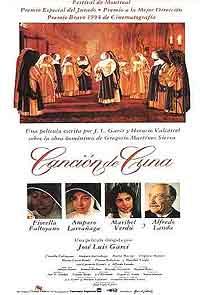 José Luis Garci (Madrid, 1944), dará comienzo con su presencia al ciclo de cine sobre su obra que organiza a partir de mañana el Instituto Cervantes de Dublín. Durante la primera sesión, se proyectará la película Canción de cuna , a partir de las 6 de la tarde en nuestro Café Literario.
José Luis Garci (Madrid, 1944), dará comienzo con su presencia al ciclo de cine sobre su obra que organiza a partir de mañana el Instituto Cervantes de Dublín. Durante la primera sesión, se proyectará la película Canción de cuna , a partir de las 6 de la tarde en nuestro Café Literario.
La acción de Canción de cuna transcurre a finales del siglo XIX, cuando un grupo de monjas encuentra abandonado a un bebé en las puertas de su convento. Este hecho romperá con la rutina de la institución en la que destaca la relación existente entre el doctor del pueblo (Alfredo Landa) y la madre priora. Adoptada por las monjas, Teresa (Maribél Verdú) crecerá como una más de ellas, pero un día aparece Pablo dispuesto a casarse con Teresa…
Instituto Cervantes brings a film series of José Luis Garci (Madrid, 1944), presented by the director, who will join us in this first session. The film Lullaby will be screened today at 6pm at Café Literario.
n the late 19th century a group of nuns finds an abandoned baby girl at the doorstep of their convent. This fact breaks with the routine of the convent which is distinguished by the relationship between the village doctor (Alfredo Landa) and the prioress. Adopted by the nuns, Teresa (Maribél Verdú) will grow as one of them; but one day sees the arrival of Pablo who wants to marry Teresa…
Lo fantástico: Homenaje a Bram Stoker | The Fantastic: Hommage to Bram Stoker
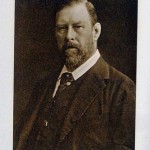 El miércoles día 28 de noviembre estarán con nosotros Luis Alberto de Cuenca y Alicia Mariño, El motivo de su visita: Bram Stoker. Porque este año se conmemora el centenario de la muerte del escritor (y matemático) dublinés. Aunque su obra fue muy prolífica, se le recuerda especiamente por la creación de una de las novelas de terror que más han influido y perdurado en la historia de la literatura: Drácula.
El miércoles día 28 de noviembre estarán con nosotros Luis Alberto de Cuenca y Alicia Mariño, El motivo de su visita: Bram Stoker. Porque este año se conmemora el centenario de la muerte del escritor (y matemático) dublinés. Aunque su obra fue muy prolífica, se le recuerda especiamente por la creación de una de las novelas de terror que más han influido y perdurado en la historia de la literatura: Drácula.
En torno a Drácula y a Bram Stoker girará la charla moderada por el Dr. Jarlath Killen, profesor de Literatura Victoriana del Trinity College Dublin. Comenzará a las 18:30 horas en nuestro Café Literario.
Luis Alberto de Cuenca (Madrid, 1950) escribe lo que él denomina poesía transculturalista en la cual lo trascendente se codea con lo cotidiano y la cultura popular se mezcla con la literaria. Fue director de la Biblioteca Nacional y Secretario de Cultura del Gobierno de España.
Alicia Mariño es licenciada en Derecho y en Filología Francesa. Ha trabajado sobre el género fantástico en distintos autores y últimamente ha orientado su labor hacia la literatura comparada, estudiando la génesis y evolución de ciertas leyendas europeas.
Instituto Cervantes Dublin is pleased to invite Luis Alberto de Cuenca and Alicia Mariño, who will payhomage to the Dubliner writer Bram Stoker. The talk will be chaired by Dr. Jarlath Killen, Lecturer in Victorian Literature at Trinity College Dublin. Do not miss this event today at 6.30pm at Café Literario.
This year we are conmmemorating the 100th anniversary of Bram Stoker´s death (1847-1912). Therefore, we would like to bring the figure of this Irish mathematician and novel and short story writer closer to you. Although his work was very prolific, he has been idolized and remembered by the creation of one of the most influential horror stories in history: Dracula.
Luis Alberto de Cuenca (Madrid, 1950), one of Spain’s most famous living poets, writes what he calls ‘transculturalist’ poetry in which the transcendental rubs shoulders with the everyday, and literary and popular cultures intermingle. He uses both free verse and traditional metres and his verse is famous for its ironic elegance and its scepticism.
Alicia Mariño has a degree in Law and in French Philology. She has worked on the fantasy genre and recently she has focused on comparative literature, studying the origin and evolution of some European legends.
Seminario de cata de cava | Cava Seminar and Tasting
Mañana martes, a las 6:30 de la tarde, en nuestro Café Literario, tienes la oportunidad de ampliar tus conocimientos sobre los vinos espumosos de España . Podrás catar seis deliciosos cavas, ideales para las fiestas navideñas, que ya están a la vuelta de la esquina. Este seminario de 90 minutos será impartido en inglés por Mary Dowey, editora de vinos de The Gloss. Suena de maravilla, ¿verdad?
España . Podrás catar seis deliciosos cavas, ideales para las fiestas navideñas, que ya están a la vuelta de la esquina. Este seminario de 90 minutos será impartido en inglés por Mary Dowey, editora de vinos de The Gloss. Suena de maravilla, ¿verdad?
El precio del seminario es de 10€ y para participar solamente tienes que enviar un correo a: reservas.dublin@cervantes.es
¡Hazlo pronto porque las plazas están limitadas! Esta actividad está organizada por la Oficina Comercial de España en Dublín, el Fondo al Desarrollo Regional Europeo y Vinos de España en colaboración con el Instituto Cervantes.
Tomorrow at 6.30, in our Café Literario, you will have the chance to develop your knowledge of Spanish sparkling wines, and besides, you will be able to taste six delicious cavas. Mary Dowey, editor of The Gloss will teach this 90 minute seminar. Sounds good, isn´t it?
The fee is €10 and if you wish to participate you just have to send an e-mail to: reservas.dublin@cervantes.es
Do it as soon as possible because spaces are limited! This event is organized by the Spanish Economic and Commercial Oficce, the European Regional Development Fund, Wines from Spain and Instituto Cervantes.
Nuevo horario de biblioteca / New library opening hours
 Debido a circunstancias imprevistas, nos hemos visto obligados a cambiar el horario de biblioteca.
Debido a circunstancias imprevistas, nos hemos visto obligados a cambiar el horario de biblioteca.
Con este nuevo horario, intentamos adaptarnos de la mejor forma posible a vuestra demanda, teniendo en cuenta los recursos de los que disponemos.
En todo caso, la biblioteca seguirá teniendo un amplio horario de apertura, de lunes a sábado. También tenéis a vuestra disposición, las 24 horas, los siete días de la semana, nuestros servicios en línea: diccionarios y bases de datos, audiolibros, y libros electrónicos.
El horario queda como sigue:
Lunes a jueves: 11.30h a 18.30h
Viernes y sábado: 9.30h a 14.00h
¡Nos vemos en la biblioteca!
Due to unforeseen circumstances, our library opening hours are changing from today until further notice:
Monday to Thursday: 11:30am-6.30pm
Friday and Saturday: 9.30am-2pm
We are sorry for any inconvenience caused. Please remember that all our members have access, 24 hours a day, 7 days a week to our online services, such as: online dictionaries and data bases, audiobooks and electronic books.
See you in the library!
Exposición: Arpilleras poéticas | Exhibition: Poetic Arpilleras
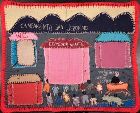 Mañana, día 22, inauguramos nueva exposición gracias a la colaboración de la Embajada de Chile en Irlanda y la Dirección de Asuntos Culturales del Ministerio de Relaciones Exteriores de Chile, los verdaderos motores de esta iniciativa.
Mañana, día 22, inauguramos nueva exposición gracias a la colaboración de la Embajada de Chile en Irlanda y la Dirección de Asuntos Culturales del Ministerio de Relaciones Exteriores de Chile, los verdaderos motores de esta iniciativa.
Arpilleras Poéticas comisariada por la académica y curadora chilena residente en Irlanda del Norte, Roberta Bacic, reúne alrededor de 30 arpilleras chilenas (técnica consistente en la utilización de piezas textiles gruesas y ásperas sobre cuya superficie se realizan trabajos de artesanía y bordado) de diversos tamaños que relatan la historia, la sociedad y la cultura del Chile reciente.
Roberta Bacic a lo largo de los años ha reunido una gran colección de dichas valiosas piezas, dedicándose desde comienzos del año 2000 a su recuperación, conservación y estudio. Ha expuesto a partir del 2008 en Nueva York, Hamburgo, Sao Paulo, Belfast, Barcelona, Berlín, Osaka, Kingston, Londres entre otras muchas ciudades y ahora en Dublín el público tendrá la oportunidad de disfrutar de este arte textil chileno que habla de las vicisitudes del hombre y la memoria.
Puedes visitar la exposición durante el siguiente horario:
Lunes a jueves: 2-7pm. Sábados: 10am a 2pm. Cerrados los viernes, domingos y Bank holidays.
From November 22th to December 15th, the Cervantes Institute, the Embassy of Chile in Ireland and the Cultural Affairs Committee of the Ministry of Foreign Affairs of Chile have the honour to invite you and your family to enjoy the Poetic Arpilleras exhibition of the Chilean academic and curator resident in Northern Ireland, Roberta Bacic. The exhibition will open at 6pm on November 22nd with the curator Roberta Bacic and a poetry recital by Chilean poet Jaime Huenún.
The exhibition “Poetic Arpilleras” gathers around 30 Chilean “arpilleras” (the technique consists scraps of materials hand sewn and appliqued onto burlap. Often arpillera dolls are used to add the three dimensional perspective. Wool is used to sew around the piece, either with a needle or crochet, to give it the shape of a picture to be hung on a wall) of various sizes. These tell about the history, society and culture of contemporary Chile.
Roberta Bacic has gathered throughout many years a vast collection of these valuable pieces devoting time to acquire, recover, conserve and study them since the early 2000’s. She has exhibited from 2008 in New York, Hamburg, Sao Paulo, Belfast, Barcelona, Berlin, Osaka, Kingston and London among many other cities. Now in Dublin, the general public will have the opportunity to enjoy this Chilean textile art which tells the story of human experience and memory.
The exhibition is open during these times:
Mon-Thurs.: 2-7 pm. Sat: 10 am-2 pm h.
Closed Frid., Sun. and Bank holidays
Novedades en la biblioteca: noviembre 2012 / New to the library: November 2012
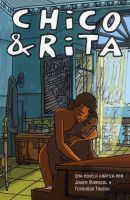 Las novedades de la biblioteca pueden ser consultadas en nuestro catálogo en línea, como es habitual.
Las novedades de la biblioteca pueden ser consultadas en nuestro catálogo en línea, como es habitual.
Para ello, seleccione ÚLTIMAS ADQUISICIONES y elija el período de tiempo que le interesa: ”el último mes” o “los últimos tres meses”.
Ésta es nuestra selección para los meses de noviembre de 2012.
The lastest additions to the library catalogue can be consulted on line as usual.
Click ÚLTIMAS ADQUISICIONES and choose the time period: “el último mes” or “los tres últimos
meses”.
This is our selection for November 2012.
Presentación de libro: “El ruido de las cosas al caer” de Juan Gabriel Vásquez | Book launch: “The sound of things falling” by Juan Gabriel Vásquez
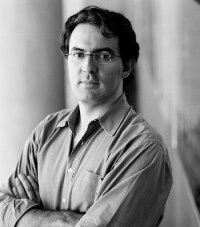 Hoy a partir de las 19:00 horas podrás disfrutar de la presentación de la traducción al inglés del último libro del autor colombiano Juan Gabriel Vásquez. El acto tendrá lugar en el Café Literario.
Hoy a partir de las 19:00 horas podrás disfrutar de la presentación de la traducción al inglés del último libro del autor colombiano Juan Gabriel Vásquez. El acto tendrá lugar en el Café Literario.
Se le considera uno de los mejores novelistas de su generación, y El ruido de las cosas al caer, que aborda el devenir de Colombia durante la época de Pablo Escobar, es hasta la fecha su mejor novela.
Tan pronto conoce a Ricardo Laverde, el joven Antonio Yammara comprende que en el pasado de su nuevo amigo hay un secreto, o quizá varios. Su atracción por la misteriosa vida de Laverde, nacida al hilo de sus encuentros en un billar, se transforma en verdadera obsesión el día en que éste es asesinado.
Convencido de que resolver el enigma de Laverde le señalará un camino en su encrucijada vital, Yammara emprende una investigación que se remonta a los primeros años setenta, cuando una generación de jóvenes idealistas fue testigo del nacimiento de un negocio que acabaría por llevar a Colombia —y al mundo— al borde del abismo.
Juan Gabriel Vásquez (Rosario, Colombia, 1973) estudió derecho en su ciudad natal y más tarde se doctoró en Literatura Latinoamericana en La Sorbona. Actualmente reside en Barcelona. Es autor de tres novelas “oficiales” —Los informantes, Historia secreta de Costaguana y El ruido de las cosas al caer—, aunque escribió otras cuando tenía 23 y 25 años de edad, que él prefiere eliminar. Sus novelas han sido traducidas en Inglaterra, Francia, Holanda, Italia y Polonia.
We are delighted to invite you to the book launch of the translation into English of the last novel written by Colombian writer Juan Gabriel Vásquez. The event will take place today at 7pm at Café Literario.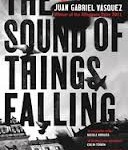
Juan Gabriel Vasquez is one of the leading novelists of his generation, and The Sound of Things Falling that tackles what became of Colombia in the time of Pablo Escobar is his best book to date.
No sooner does he get to know Ricardo Laverde than young Antonio Yammara realises that his new friend has a secret, or rather several secrets. Antonio’s fascination with the life of Laverde begins by casual acquaintance in a billiard hall and grows until the day Ricardo is murdered.
More out of love with life than ever, he starts asking questions until the questions become an obsession that leads him to Laverde’s daughter. His troubled investigation leads all the way back to the early 1960s, marijuana smuggling and a time before the cocaine trade trapped a whole generation of Colombians in a living nightmare of fear and random death.
Juan Gabriel Vásquez (Rosario, Colombia, 1973) studied law in his hometown and obtained a phd in Latin American Literature in the Sorbone University. At present he lives in Barcelona. He has published three “official” novels – The informers, The secret history of Costaguana and The Sound of Things Falling— however he wrote others at the age of 23 and 25 which he prefers to omit. His works have been translated in England, France, Netherlands, Italy and Poland.
